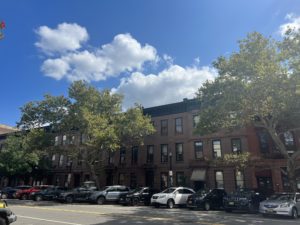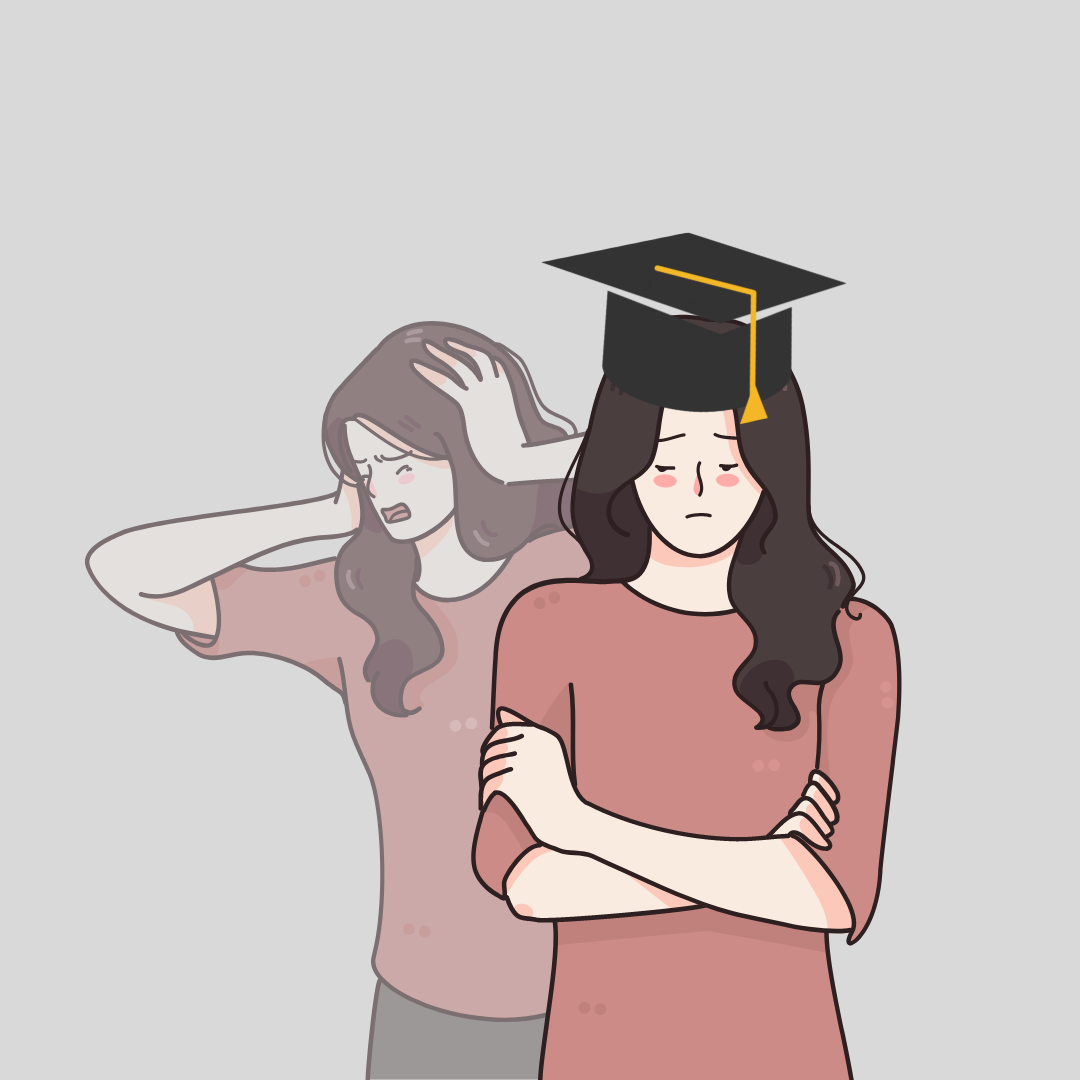Graphic by staff writer / photographer Eva Reid.
Graduating from college is one of the greatest days of one’s life, and it is, but reality quickly hits.
Post-graduate depression can occur after the completion of undergraduate or graduate school, with many questioning what is to come next in their future.

Although there is no real diagnosis of post-graduate depression, depression in young adults has increased throughout the years.
According to the National Institute of Mental Health, 17% of individuals ages 18-25 live with Major Depressive Disorder, the age group with the highest amount of individuals suffering from it.
Post-grad depression can even occur for those who have just graduated high school and going through a transition process entering college.
For many, the end of University comes with extra stressors that don’t just involve job hunting, like paying off student loans.
Sixty-five percent of college graduates exit college having student loan debt.
Saint Peter’s University 2022 graduate Serena Mohamed shared her experiences with post-graduate depression.
“During my vacation I didn’t feel productive and I was feeling guilty about it even though I was burnt out this past year,” Mohamed told Slice of Culture. “I think the uncertainty of the future was what made me feel anxious and depressed.”
After time away from friends and family during the height of the COVID-19 pandemic, graduates have had to deal with the separation from their friends again.
“I think something else that added to the post-grad depression was not seeing my friends anymore when I used to see them everyday. It felt like having classes during the early stages of the pandemic all over again where it was really isolating,” she explained.
According to Times International, 49% of graduates have felt a negative effect on their mental health after graduation.

In college, doing well in my classes and getting involved, I felt like I was on top of the world. After college, it can feel like reality has slapped you in the face.
There are many questions that I have asked myself.
“What sets me from the rest?” “Will I land the job?” “I am not in school anymore? It’s my whole life. Now what?!”
Luckily, it is normal to feel this way. You are NOT alone.
To all of my fellow college graduates, here are some of my tips for you:
- Rejection is a part of life.
- The job application process takes time, be patient with yourself.
- It is OK to feel these intense emotions.
- Take on hobbies that you may have forgotten about or have never done before.
- Even though you may not see your friends as often as before, it will feel 10x better when you reunite with them.
For me, reading books and writing during my free time has been my saving grace. Taking your mind off of things and doing something you enjoy or are interested in can be a huge help.

The people I have surrounded myself with have made my post-graduate experience so much better. My friends, family and professors have encouraged me that rejection is ok and does not make you any less of a person.
What is meant to be will be and to not lose sight of the future.
If you believe you are suffering from post-graduate depression, and that it is affecting your day-to-day life, please don’t hesitate to reach out for help from a trained therapist.



Generic tips are risky for persons suffering from self-diagnosed Major Depression. The best thing that everyone can offer is to suggest that the depressed person seek assistance from the nearest Mental Health or Family Service Agency for an assessment.
Simplistic “feel good” tips may also trigger suicide.